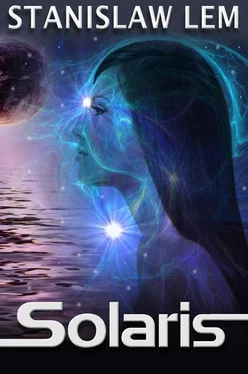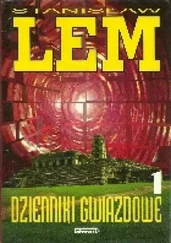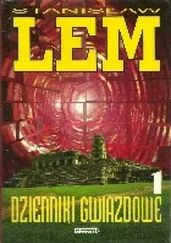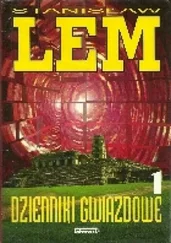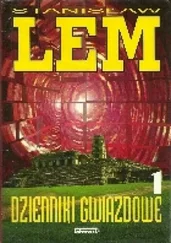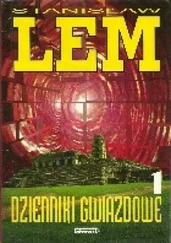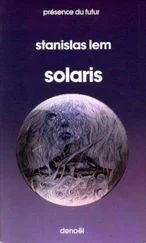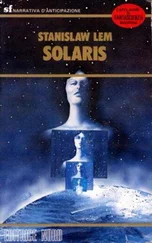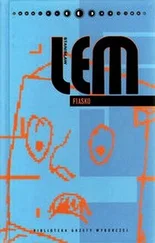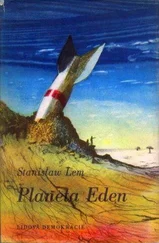“Will you not stop?” I grabbed his arm.
“You can beat me if you want,” he said, “I’m still going to talk.”
I let go of him.
“Do whatever you want.”
“The point is, Sartorius will try and conceal certain facts. I’m almost certain of it.”
“And you won’t?”
“No. Not any more. This isn’t just about us. It’s about — you know what it’s about. It demonstrated rational activity. A capacity for organic synthesis of the highest order, something quite unknown to us. It knows the composition, the microstructure, the metabolism of our bodies…”
“Fine,” I said. “Why stop there? It performed a series of… experiments on us. A mental vivisection. Based on knowledge stolen from our heads, and paying no attention to our own purposes.”
“Those aren’t facts, they’re not even inferences, Kelvin. They’re hypotheses. In a certain sense it did pay attention to what was desired by a closed, hidden part of our minds. These could have been — gifts…”
“Gifts! Dear God!”
I burst out laughing.
“Stop it!” he exclaimed, gripping my hand. I squeezed his fingers, pressing harder and harder till his knuckles crunched. He was looking at me through narrowed eyes, without wavering. I let go of him and moved off into the corner. Standing with my face to the wall, I said:
“I’ll try not to be too hysterical.”
“Never mind all that. What are we going to ask for?”
“You decide. I can’t, not right now. Did she say anything before…?”
“No. Nothing. As for me, I believe an opportunity has arisen.”
“An opportunity? What opportunity? For what? Oh,” I said more quietly, looking him in the eye, because I’d suddenly gotten it. “Contact? We’re back with Contact? Haven’t we had too much already… you also, you yourself, and this whole madhouse… Contact? No no no. Count me out.”
“Why?” he asked, completely calm. “Kelvin, you keep insisting on treating it as a person, now more than ever. You hate it.”
“And you don’t?” I snapped.
“No. Kelvin, come on, it’s blind…”
“Blind?” I repeated, unsure whether I’d heard right.
“Of course, in our understanding of the word. We don’t exist for it the way we do for each other. The surface of the face, of the body, which we see, means we encounter one another as individuals. For it, this is only a transparent screen. After all, it penetrated the inside of our brains.”
“All right. But what of it? What are you getting at? If it was able to create a person who didn’t exist outside of my memory, bring her to life, and in such a way that her eyes, her movements, her voice… her voice…”
“Keep talking! Keep talking, man!!”
“I am talking… I am… Yes. So then… her voice… This means it can read us like a book. You know what I’m saying?”
“Yes. That if it wanted to, it could communicate with us?”
“Of course. Is that not obvious?”
“No. Not in the slightest. It could simply have taken a procedure that didn’t consist of words. As a fixed memory trace it’s a protein structure. Like the head of a spermatozoon, or an ovum. After all, in the brain there aren’t any words, feelings, the recollection of a person is an image written in the language of nucleic acids on megamolecular asynchronous crystals. So it took what was most clearly etched in us, most locked away, fullest, most deeply imprinted, you know? But it had no need whatsoever to know what the thing was to us, what meaning it held. Just as if we were able to create a symmetriad and toss it into the ocean, knowing the architecture and the technology and structural materials, but with no understanding of what it’s for, what it means to the ocean…”
“Quite possibly,” I said. “Yes, that’s possible. In such a case it had no… perhaps it had no intention of trampling on us and crushing us the way it did. Perhaps. And it only unintentionally…”
My lips began to tremble.
“Kelvin!”
“I know, I know. It’s fine. It’s nothing. You’re a good man. It’s good too. Everyone’s good. But what for? Explain it to me. What for? Why did it do it? What did you tell her?”
“The truth.”
“The truth, the truth! But what?”
“You know. Come to my room now. We can write the report. Come on.”
“Wait a moment. What are you really after? Surely you’re not planning to remain on the Station…?”
“I want to stay here. Yes.”
I was sitting by the big window and staring at the ocean. I had nothing to do. The report, which had taken five days to write, was now a bundle of waves speeding across the void somewhere beyond the constellation of Orion. When it reached the dark dusty nebula that extends across eight trillion cubic miles and swallows every signal and light ray, it would hit the first of a series of relays. From there, from one radio beacon to the next, in leaps of billions of miles it would hurtle in a vast arc all the way to the last relay, a metal container packed tight with precision instruments and equipped with the extended muzzle of a directional antenna, which would compress it one more time and fling it further into space, toward Earth. Months would pass and an identical packet of energy, trailing a wake of shockwave distortions through the gravitational field of the Galaxy, would be shot from Earth, would reach the edge of the cosmic cloud, squeeze through it, fortified by the series of slowly drifting beacons, and with undiminished rapidity would speed on toward the double suns of Solaris.
Beneath the red sun the ocean was blacker than ever. A ruddy mist melted the place where it met the sky; the day was exceptionally hot, as if presaging one of those extremely rare and unimaginably violent storms that strike the planet a few times a year. There are reasons to believe that its only inhabitant controls the climate and itself causes the storms.
For several more months I would be gazing from those windows, observing from high up the sunrises of white gold and oppressive red, mirrored from time to time in some fluid eruption, in the silvery bauble of a symmetriad; following the journey made by slender rapidos leaning into the wind; encountering half-degraded, crumbling mimoids. One day the screens of all the visuphones would start to flicker, the entire electronic signalization system, long dormant, would spring to life, set in motion by an impulse sent from hundreds of thousands of miles away announcing the approach of a metal colossus that would lower itself over the ocean with a prolonged thunder of its gravitors. It would be either the Ulysses or the Prometheus, or another of the great long-distance cruisers. When I climbed the accommodation ladder from the flat roof of the Station, on board I’d see ranks of bulky white-armored automats that do not share mankind’s original sin and are so innocent they carry out any command, to the point of destroying themselves or any object lying in their path, if their memory, oscillating in crystal, is so programmed. And then the ship would move off, noiselessly, faster than sound, leaving behind it a cone of reverberations splitting into bass octaves as it reached the ocean, and the faces of all the humans would brighten for a moment at the thought that they were returning home.
But I had no home. Earth? I thought about its great crowded buzzing cities, in which I would become lost, almost effaced, as if I’d gone through with what I wanted to do that second or third night — thrown myself into the ocean where it rocked sluggishly in the darkness. I’d drown in people. I’d be a reticent, observant, and therefore valued, companion, I’d have many acquaintances, friends even, and women, maybe even one woman. For some time I’d have to force myself to smile, say hello, get to my feet, perform a thousand trivial actions from which life on Earth is composed, till I stopped being aware of them. I’d find new interests, new pastimes, but I wouldn’t give myself over to them completely. Not to anything or anyone, ever again. And, maybe, I’d stare into the night towards the place where the darkness of the dusty nebula blocks the light of two suns like a black veil; I’d remember everything, even what I was thinking now, and with an indulgent smile in which there was a hint of regret, but also of superiority, I’d recall my follies and my hopes. I absolutely did not regard that “me” of the future as anything worse than the Kelvin who was prepared to do anything in the cause of so-called Contact. And no one would ever have the right to judge me.
Читать дальше
